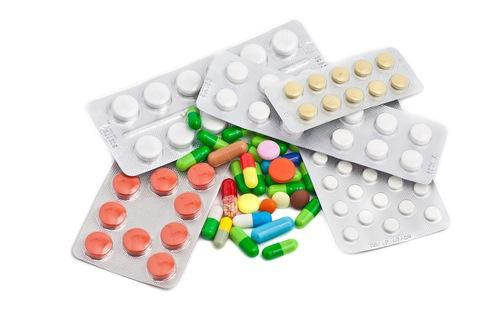
 A new study from Sweden reinforces the importance of adequate dietary intake of iodine during pregnancy and breastfeeding. Iodine is a mineral important to thyroid function, which regulates brain development during pregnancy and in early childhood. The study indicates pregnant women in Sweden are not getting enough iodine in their diets.
A new study from Sweden reinforces the importance of adequate dietary intake of iodine during pregnancy and breastfeeding. Iodine is a mineral important to thyroid function, which regulates brain development during pregnancy and in early childhood. The study indicates pregnant women in Sweden are not getting enough iodine in their diets.
The Swedish study comes on the heels of a broader study of pregnant women in Europe which indicates as many as two-thirds of all expectant mothers were deficient in iodine consumption. The World Health Organization (WHO) recommends an assessment of iodine status in each country every five years.
Dr. Michaela Granfors led the study from University Hospital in Uppsala, Sweden, which involved 459 pregnant women living in two areas of the country. The women represented a cross-section of the national demographic and all were non-smokers who did not have diabetes or thyroid disease.
The median urinary iodine concentration of the pregnant women in the Swedish study was only 98 mcg.
Tasty Ways to Add Iodine to the Diet
- One of the biggest breakthroughs in thyroid health occurred in 1924 when the Morton Salt Company started adding iodine to ordinary table salt. A University of Michigan professor of pediatrics, David Murray Cowie, urged the iodization of salt to improve the intelligent levels of the children he worked with. After use of iodized table and cooking salts became widespread, children’s IQs went up across the nation.
- Choose iodized salt for at-home use but don’t expect to find it everywhere. Pre-packaged processed foods (soups, snacks, and most other products that come in packages, cans, boxes, and bags) use plain salt, not iodized.
- Foods from the sea are naturally rich in iodine. Choose cod, tuna, shrimp, and seaweed for natural dietary sources of this brain-boosting mineral.
- Dairy and grain products provide the most iodine in the typical American diet. Iodine in the soil is transported to the animal when it eats grain grown in iodine-rich soils.
- Fruits and vegetables grown in iodine-rich soils contain iodine from the soil. There are large geographic pockets of land, however, usually in mountainous regions, where the soil is iodine-poor.
- Dietary supplements sometimes include iodine that’s listed on labels as potassium iodide and sodium iodide. Supplements that contain the seaweed, kelp, are high in iodine.
- Prenatal dietary supplements don’t always contain iodine so it’s important to read labels to ensure this vital mineral is included in adequate amounts. An iodine-rich diet, along with vitamin-mineral supplements, during pregnancy and breastfeeding, will help ensure optimum neurological development for a growing baby.
While it is advised to get adequate amounts of iodine while pregnant and breastfeeding, too much can also be dangerous. Stick to the recommended 250 mcg per day and consult your doctor if you feel you need more.
Sources:
- "Experts Stress Need for Sufficient Iodine Nutrition During Pregnancy." Wiley. John Wiley & Sons, Inc., 26 Aug. 2015. Web. 9 Sep. 2015.
- "Iodine: Fact Sheet for Consumers " National Institutes of Health / Office of Dietary Supplements. US Department of Health & Human Services, 24 June 2011. Web. 9 Sep. 2015.
